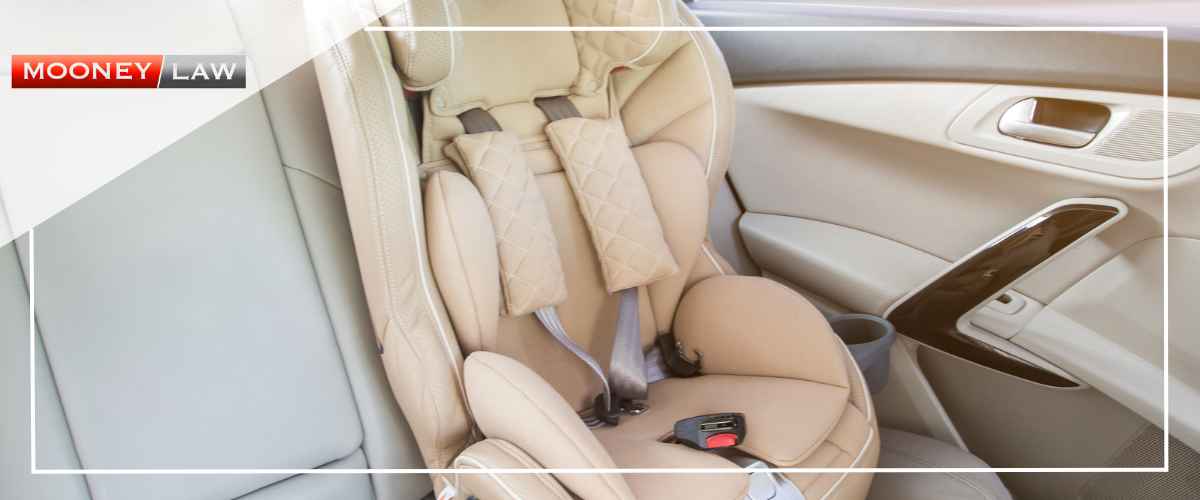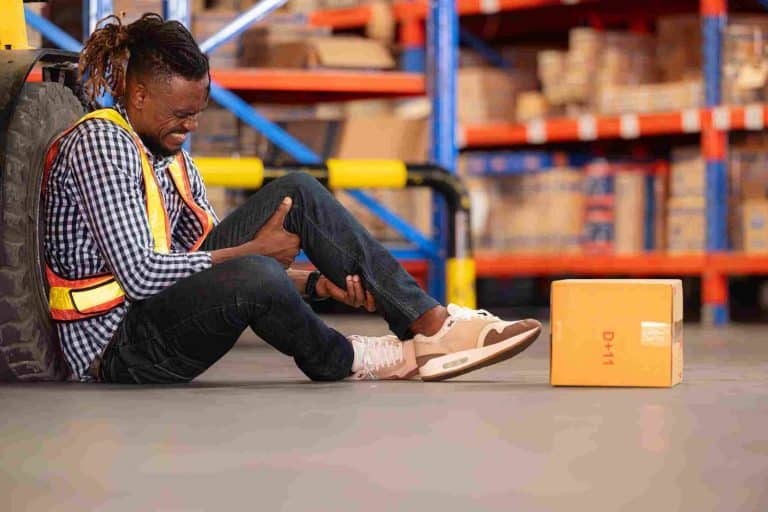If you have been involved in a car crash in Pennsylvania, you know how crucial it is to ensure the safety of your youngest passengers. Child safety seats are designed to protect children in an accident. But are you familiar with Pennsylvania’s laws concerning these lifesaving devices?
Our Pennsylvania auto accident attorney at Mooney Law is here to explain the importance of child safety seats, the state regulations you need to follow, and the legal implications of compliance or non-compliance.
The Role of Child Safety Seats in Preventing Injuries
In Pennsylvania, motor vehicle crashes remain a leading cause of death and injury for children. Statistics from the National Highway Traffic Safety Administration (NHTSA) show that properly using child safety seats can significantly mitigate these risks.
Child safety seats are designed to restrain children securely during a car crash, thereby reducing the risk of serious injury or death. According to reports, child safety seats reduce the risk of injury in crashes by 71% for children compared to using seat belts alone.
The trauma of a car accident involving children extends beyond physical injuries. Emotional distress and financial burdens from medical bills can be overwhelming. Ensuring you properly secure your child in a safe seat can dramatically lessen these repercussions, making it a priority for all caregivers.
Understanding Different Types of Child Safety Seats
There are several types of safety seats available. The one you select for your child can depend on their height, weight, and age. The options include:
Infant Car Seats
Infant car seats are made to keep newborns and small babies safe during transit. These rear-facing seats offer the best protection for infants’ developing spinal cords and necks. Typically, they can accommodate babies up to 22-35 pounds and should always be installed in the vehicle’s back seat.
Convertible Car Seats
Convertible car seats can be used as both forward-facing and rear-facing seats. They are suitable for toddlers and can support children up to 65 pounds.
Booster Seats
These seats are used to keep older children who exceed the size requirements for their seats that are forward-facing safe while traveling in motor vehicles. These devices help elevate the child so that the seat belt fits correctly over the stronger parts of their body, like the chest and hips. Booster seats are generally used until a child is tall enough (usually about 4 feet 9 inches) to wear a seat belt comfortably without assistance.
Guidelines for Selecting the Right Seat
Choosing the right seat depends on your child’s age, weight, and height. Always refer to the manufacturer’s guidelines to ensure proper fit and safety. Keep in mind that the correct installation is just as important as selecting the right seat; improper installation can render even the best seat ineffective.
Importance of Proper Installation
Proper installation of child safety seats is crucial. Studies show that nearly 60% of car seats are installed incorrectly. Follow the manufacturer’s instructions meticulously and, if in doubt, seek help from certified child passenger safety technicians available at many local police or fire stations.
Pennsylvania Child Safety Seat Laws
Pennsylvania law mandates that all children under the age of eight must be secured in an appropriate child restraint system. This law is aligned with the national guidelines set by the NHTSA and aims to reduce fatalities and injuries among children in motor vehicle crashes.
Specific Requirements by Age Group
- Infants and Toddlers (Under 2 years old): Must be in a rear-facing car seat until they exceed the maximum height or weight limits set by the seat manufacturer.
- Young Children (2-4 years old): Should be secured in a forward-facing car seat with a harness until they surpass the seat’s height or weight limits.
- Older Children (4-8 years old): Must use a booster seat until they reach 4 feet 9 inches in height or are older than 8 years.
Exceptions and Special Circumstances
Certain exceptions apply, such as medical conditions that prevent the use of standard child restraint systems. In such cases, a physician’s note may be required. Additionally, if all vehicle seating positions equipped with seat belts are occupied by other children, a child may be secured in a seat belt without a booster seat.
Legal Implications After Car Accidents
Following our state’s child safety seat laws can greatly impact the outcome of legal proceedings following a car accident. Showing that you are following these regulations can help with your case, whether you are pursuing damages or defending against a claim.
Role of Seat Compliance in Determining Liability and Negligence
In legal proceedings, using a proper child safety seat can be a crucial factor in determining liability and negligence. Non-compliance can lead to reduced compensation or even dismissal of your claim. Therefore, ensuring that your child is properly restrained is essential for their safety and for protecting your legal rights.
Potential Legal Consequences of Non-Compliance
Failure to comply with Pennsylvania’s child safety seat laws can result in fines and penalties. First-time offenders may face a fine of $75, which can increase with subsequent violations. These penalties underscore the importance of adhering to the state’s regulations.
Impact on Insurance Claims and Personal Injury Lawsuits
Non-compliance with child safety seat laws can negatively impact insurance claims and personal injury lawsuits. Insurance companies may deny claims or reduce payouts if it is determined that a child’s injuries were exacerbated by improper restraint. Similarly, in personal injury cases, the court may view non-compliance as contributory negligence, affecting the outcome.
Call Our Pennsylvania Auto Accident Attorney
If you are involved in a car accident and need legal assistance, you should immediately seek help from a car accident lawyer in Pennsylvania. Our Pennsylvania auto accident attorney at Mooney Law is available to help you better understand your rights and fight to protect them. We offer free consultations to discuss your rights and the best action.
Our experienced car accident lawyer in Pennsylvania can provide valuable insights and representation to ensure you receive the compensation you deserve.
At Mooney Law, we are committed to helping car crash victims in Pennsylvania handle personal injury cases. If you have any questions or need legal help, do not hesitate to contact us. Call our car accident lawyer in Pennsylvania today to get started on securing your rights and receiving the compensation you deserve.


